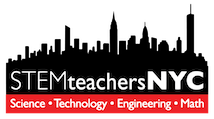December 2024
Led by one of our working group members, the December 12 meeting of the Harnessing AI for Educators working group explored the potential of PlayLab.AI as a platform for creating custom AI tools tailored to education. PlayLab.AI as an open-source alternative to popular AI tools like ChatGPT and Claude. The meeting highlighted the platform’s accessibility and versatility, encouraging educators to experiment with its features.
The meeting’s leader demonstrated how to implement AI tools in education effectively, such as creating chatbots that mimic a teacher’s tone and style. They outlined steps for defining a bot’s role, expertise, and interaction style, offering practical advice on structuring workflows for tasks like grading and feedback. The meeting discussion delved into specific technical details, including linking Google documents and incorporating reference materials. They also compared the effectiveness of AI models, suggesting that GPT-4 may excel in step-by-step guidance, while Claude is better suited for comprehensive text analysis. This hands-on approach helped participants visualize how they might integrate AI into their classrooms.
The group explored a variety of educational applications for PlayLab.AI, from guiding students through neuroscience research projects to creating study aids and grading tools. The meeting’s leader shared examples of how AI can streamline processes like evaluating lab reports using rubrics, sparking conversations about how such tools might be adapted for other subjects. The discussion also touched on empowering students to develop their own AI tools, providing an opportunity to build their understanding of AI and its responsible use. These applications illustrated the platform’s versatility and potential to enhance both teaching and learning.
Ethical considerations and challenges of AI in education were a key focus. One member raised concerns about discouraging misuse of AI in assignments, prompting a broader discussion on fostering academic integrity while leveraging AI effectively. The group introduced GPTZero, a tool to detect AI-generated content, and emphasized the importance of rethinking assessments to mitigate misuse. Participants highlighted the need for scaffolding AI integration, balancing AI support with the cultivation of students’ critical thinking and problem-solving skills. The session underscored the importance of teaching technology literacy and fostering a thoughtful, ethical approach to AI use in education.
Note: summaries are written with aid of AI text software

